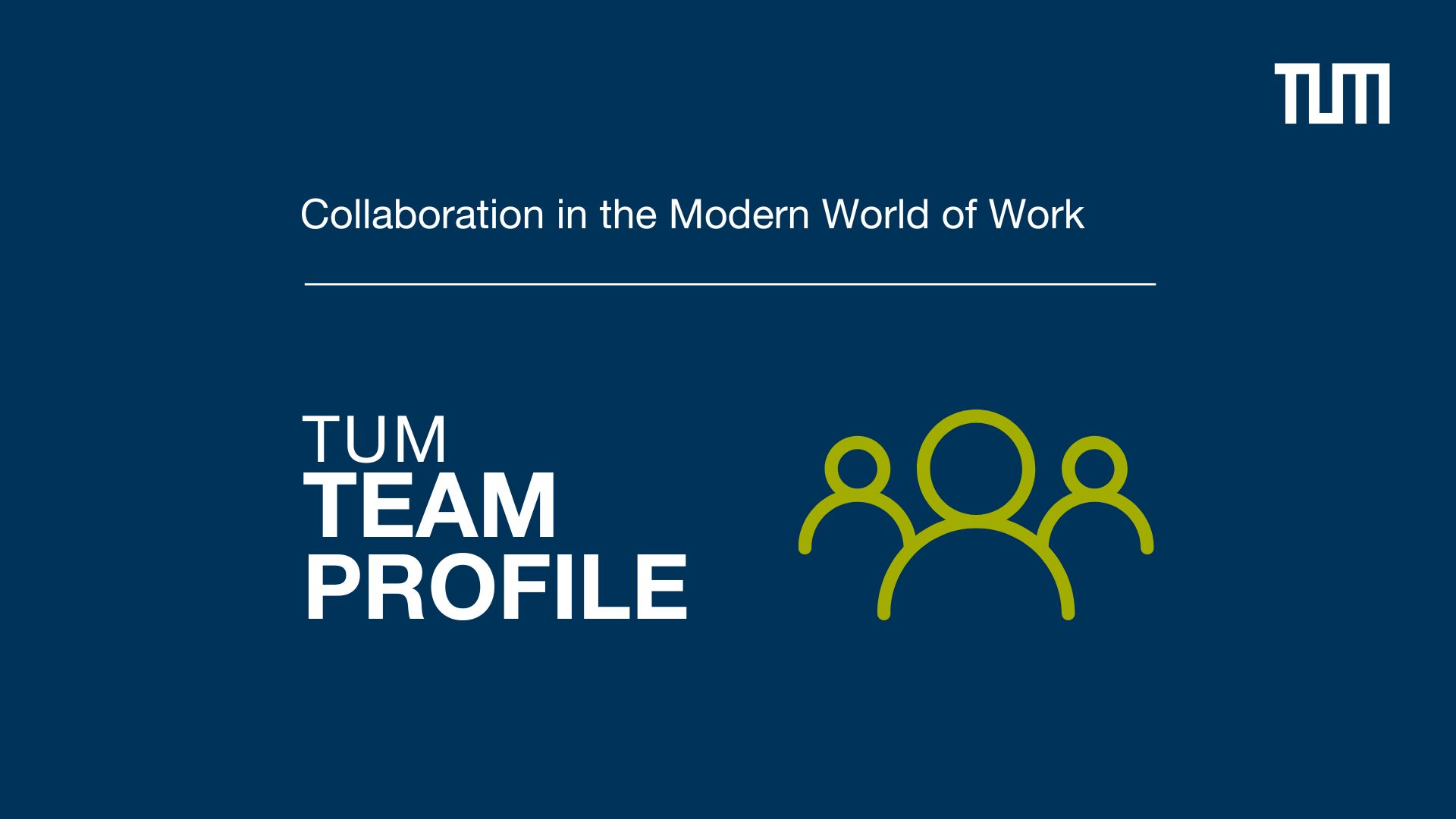[vc_row][vc_column][vc_column_text]Teams are regularly confronted with complex and challenging situations that they have not experienced before and therefore bring with them a great deal of uncertainty. In such challenges, different teams use different strategies to get where they want to go. With our TUM Team Profile, participating managers and their teams receive insightful feedback on how to handle such situations.[/vc_column_text][/vc_column][/vc_row][vc_row][vc_column][vc_column_text]
What is the project about?
The TUM Institute for LifeLong Learning and the Chair of Research and Science Management are investigating how teams deal with the challenges of the new working world. These include change processes such as outsourcing, restructuring like office downsizing, team rebuilding, the pandemic, or persistent technical problems. As part of a research project, we offer scientifically based team feedback for managers: the TUM Team Profile.[/vc_column_text][/vc_column][/vc_row][vc_row][vc_column][vc_column_text]
What advantages does this offer to leaders and their teams?
Leaders receive concrete feedback on how the team handles challenging situations: Which effective and ineffective strategies does the team demonstrate? Where are the approaches for improvement?
The TUM Team Profile offers scientific input, practical recommendations and impulses for reflection on teamwork.[/vc_column_text][/vc_column][/vc_row][vc_row][vc_column][vc_column_text]
What do I have to do to qualify for participation?
Leaders who have been working with their team (consisting of at least three other people) for more than one year can register here from October 1 to November 30 and will receive further information shortly thereafter.[/vc_column_text][/vc_column][/vc_row][vc_row][vc_column][vc_column_text]
How does the participation work?
Leaders and all team members take part in a total of three short online surveys, to which they are automatically invited once a week. Each survey takes a maximum of 15 minutes.
We offer the TUM Team Profile in German. Participation is free of charge.[/vc_column_text][/vc_column][/vc_row][vc_row][vc_column][vc_column_text]
What is the scientific basis of the work?
The TUM Team Profile is based on well-researched theories of teamwork (Marks et al., 2001; Mathieu et al., 2015) as well as own research findings (Georganta & Brodbeck, 2020; Georganta et al., 2022; Knipfer & Kump, 2021; Otte et al., 2019).
We use an assessment test that relates to a specific team challenge. This test provides teams and their leaders with an accurate assessment of their response to challenging situations. It covers different behavior patterns of teams as well as leaders, ranging from ineffective behaviors such as rumination to effective behaviors such as team reflection.
The TUM Team Profile therefore provides situation-specific feedback as a starting point for further teamwork.[/vc_column_text][/vc_column][/vc_row][vc_row][vc_column][dhsv_vc_button modal_act=”btnlink” link=”url:https%3A%2F%2Fww3.unipark.de%2Fuc%2FRegisterTUMTeamProfile%2F|title:Register%20now|target:_blank”][/vc_column][/vc_row][vc_row][vc_column][vc_zigzag][vc_column_text]Sources:
Georganta, E., & Brodbeck, F. C. (2020). Capturing the Four-Phase Team Adaptation Process with Behaviorally Anchored Rating Scales (BARS). European Journal of Psychological Assessment. doi:10.1027/1015-5759/a000503
Georganta, E., Stracke, S., Knipfer, K., Burke, C. S., & Brodbeck, F. C. (accepted). Shedding Light on Team Adaptation: Does Experience Matter? Small Group Research
Knipfer, K., & Kump, B. (2021). Collective rumination: When ‘problem talk’ impairs organizational resilience. Applied Psychology: An International Review. Online First. DOI: 10.1111/apps.12315.
Otte, K., Knipfer, K., & Schippers, M. (2019). Team reflection: A catalyst of team development and the attainment of expertise. Oxford Handbook of Expertise (pp. 1–24). Oxford University Press, UK. Online First.[/vc_column_text][/vc_column][/vc_row]
